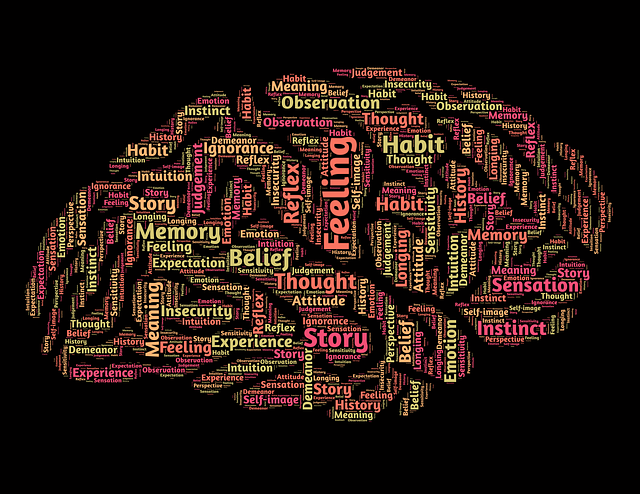Eight Wealth Strategies During the Coronavirus
 “The utility of living consists not in the length of days, but in the use of time.” - Michel de Montaigne
“The utility of living consists not in the length of days, but in the use of time.” - Michel de Montaigne
For better or worse, many of us have had more time than usual to engage in new or different pursuits in 2020. Even if you're as busy as ever, you may well be revisiting routines you have long taken for granted. Let's cover eight ways—some effective and others ineffective—to spend your time shoring up your financial well-being in the time of the coronavirus.
1. A Best Practice: Stay the Course
Many investment habits remain the same as ones we've been advising all along. Build a low-cost, globally diversified investment portfolio with the money you've got earmarked for future spending. Structure it to represent your best shot at achieving your financial goals by maintaining an appropriate balance between risks and expected returns. Stick with it, in good times and bad.
2. A Top Time-Waster: Market-Timing and Stock-Picking
Why have stock markets been ratcheting upward during socioeconomic turmoil? Market theory provides several rational explanations. Mostly, market prices continuously reset according to "What's next?" expectations, while the economy is all about "What's now?" realities. If you're trying to keep up with the market's manic moves ... we recommend that you stop doing that. You're wasting your time.
How To Be Positively Skeptical Part 4: Check the Facts Before You Act

“You can outsource expertise but never your understanding, especially when it comes to your finances.” — Ben Carlson, Don't Fall For It
As we covered in the most recent installment in our “How To Be Positively Skeptical” series, there are only so many hours in the day to do all the fact-checking you’d like to when deciding who and what to believe.
How do you approach this never-ending challenge? We suggest conducting your due diligence like a tournament. First, eliminate the weakest contenders, then conduct deeper due diligence on the finalists.
Truths and Dares
This does NOT mean you should disregard all opposing viewpoints. As you may recall from our last piece, confirmation bias causes us to favor information that supports our beliefs and ignore that which contradicts them. But what if your beliefs are mistaken?
How To Be Positively Skeptical Part 3: How Do You Do Your Due Diligence?

“All media shares one thing: Someone created it. And it was created for a reason. Understanding that reason is the basis of media literacy.” — Common Sense Media
In previous installments of our “How To Be Positively Skeptical” series, we covered the many forces that tease us into falling for misinformation. Bottom line, our brains are hardwired to lead with fight-or-flight instincts ahead of rational resolve. As such, our critical thinking often plays second-fiddle to rash reactions such as fear, excitement, overconfidence, and regret.
In the financial jungle, it’s essential to look before you leap at emotion-triggering misinformation. Here are five “dos” and “don’ts” for doing your best fact-finding due diligence.
1. Do be positively skeptical. In the courthouse, a defendant is presumed innocent until proven guilty. When managing information overload, we recommend you default to exactly the opposite: When in doubt, remain in doubt until you’ve done your due diligence.
Also watch out for confirmation bias. If you want something to be true, you’ll be more inclined to believe it is. Likewise, if you wish something weren’t so, you’ll assume it probably isn’t.
How To Be Positively Skeptical Part 2: Understanding Your Emotions

“The challenge for all investors is to consume the news without being consumed by it.” — Jason Zweig
In a recent post, we introduced our multipart series on the importance of separating fact from fiction—as an investor, as well as in your everyday life. Today, let’s talk about your emotional reaction to unfolding news, and the impact that can have on your financial well-being.
The Usual Emotions in Unusual Times
If anything, current events have made this series even more important. Thoughtful, sober answers to our most pressing questions must now compete against a deluge of emotional misinformation that can almost be as virulent as the ailment itself.
First of all, there’s nothing wrong with having emotions—even strong ones.
For example, many of us may be grieving the loss of the “normal” life we used to have just a few months ago. It’s important to acknowledge these feelings. In a recent National Public Radio piece, behavioral counselor Sonya Lott explains how unattended grief can impair “every aspect of our being—physically, cognitively, emotionally spiritually …” and financially, we might add. Lott says, “We can’t heal what we don’t have an awareness of.”
How To Be Positively Skeptical Part 1: The Benefits of Having Doubt
 "I’m not an optimist. That makes me sound naïve. I’m a very serious ‘possibilist.’ That’s something I made up. It means someone who neither hopes without reason, nor fears without reason, someone who constantly resists the overdramatic worldview." — Hans Rosling, Factfulness
"I’m not an optimist. That makes me sound naïve. I’m a very serious ‘possibilist.’ That’s something I made up. It means someone who neither hopes without reason, nor fears without reason, someone who constantly resists the overdramatic worldview." — Hans Rosling, Factfulness
Whether you’re considering an investment opportunity or simply browsing various media for insights and entertainment, it has become increasingly obvious: You cannot believe everything you see, hear, or read. Much of it is “overdramatic.” Too much of the rest is just plain wrong.
To be positively skeptical, we must continue to think and learn and grow. But we also must aggressively avoid falling for hoaxes and hype.
Social Media: An Aggravating Allure
Of course, selling proverbial snake oil and falling for falsities is nothing new. As investors, citizens, and individuals, it will always be our task to remain informed purveyors of the truth. But in today’s climate of information overload, this is no easy task. The very features that make online engagement so popular also make it a powerful forum for sowing deceit and confusion.